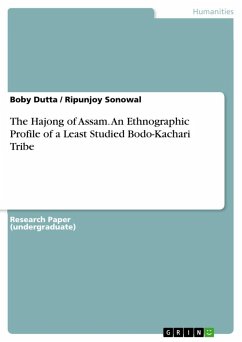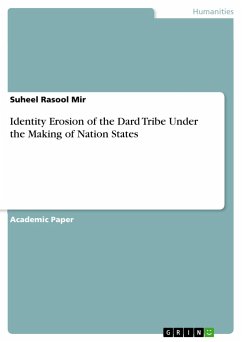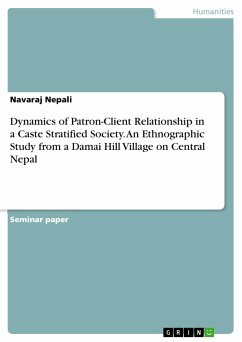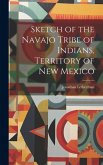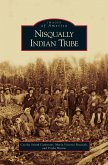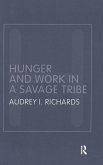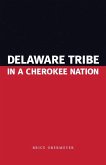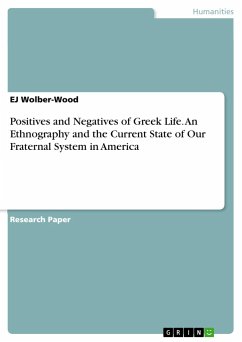Research Paper (undergraduate) from the year 2015 in the subject Ethnology / Cultural Anthropology, grade: 1, , language: English, abstract: The present paper is a brief ethnographic report on the Hajong tribe of Assam. They are a least studied small endogamous Bodo-Kachari tribe having a trans-border international presence i.e. in NE India and in Bangladesh. A huge number of them migrated to India from their homeland in erstwhile East-Pakistan. The paper is based on the data collected through standard anthropological methods from two remote Hajong villages viz. Kuhiarbari and Kotha Adarsha, located along the Assam-Arunachal Pradesh border in Margherita Sub-division, Tinsukia district, upper Assam. The Hajongs are patrilineal, patriarchal and patrilocal; and in marital alliances the rules of tribal endogamy and clan exogamy are followed. They have the traditional custom of paying bride price - Khalti. The people by and large live in nuclear families. Agriculture is the main occupation of the Hajongs. They follow Hinduism; Bastu puja and Bash puja are important religious ceremonies of the people performed by the Deoshi (traditional village priest).
Hinweis: Dieser Artikel kann nur an eine deutsche Lieferadresse ausgeliefert werden.
Hinweis: Dieser Artikel kann nur an eine deutsche Lieferadresse ausgeliefert werden.

